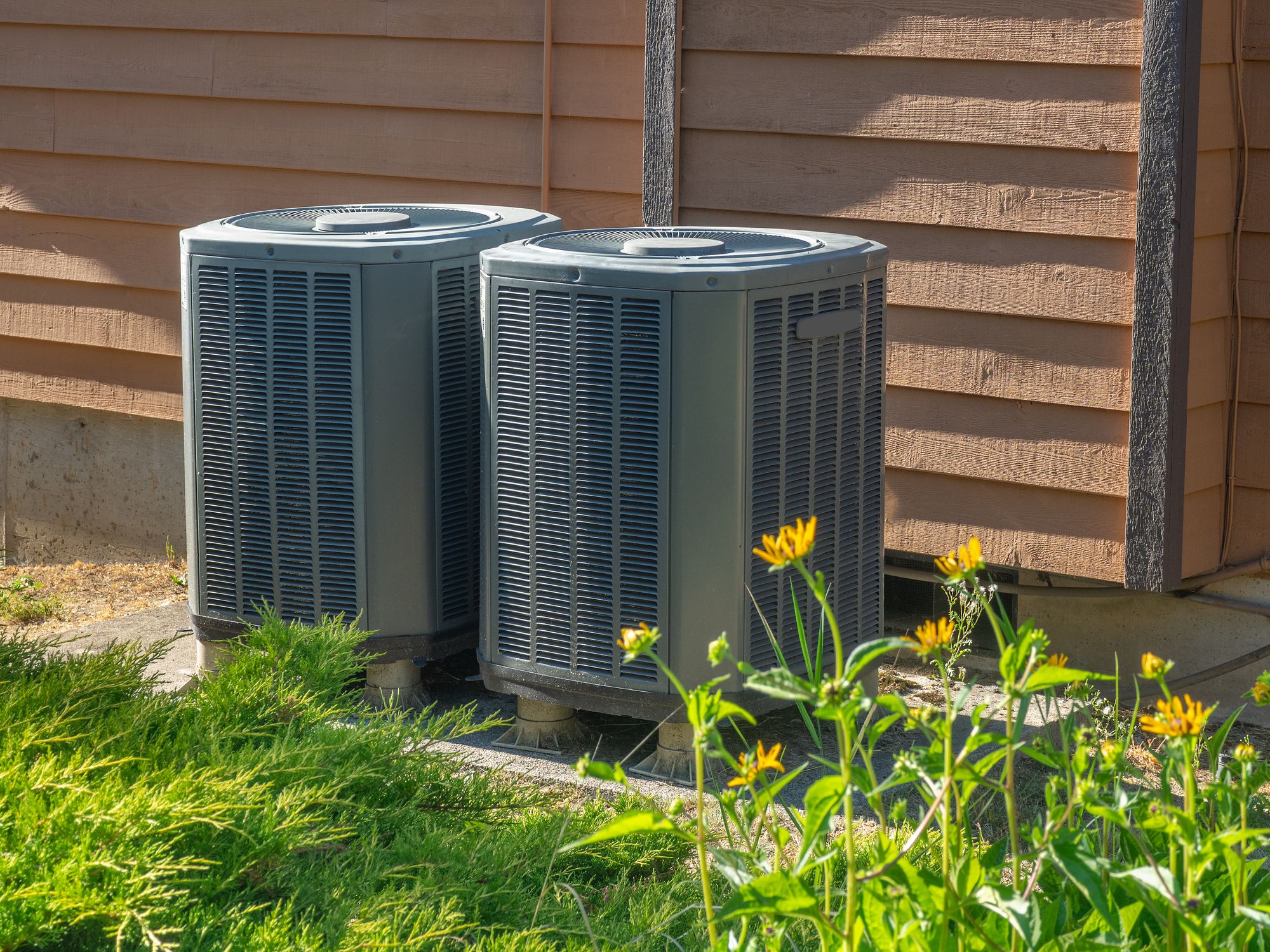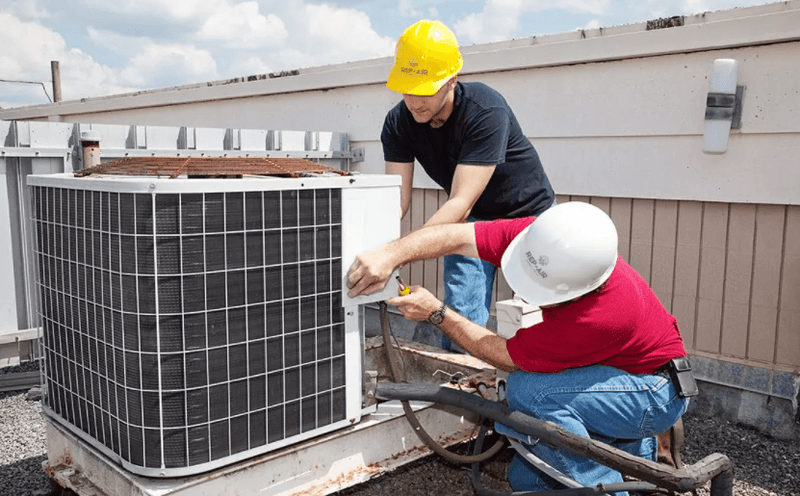See how HVAC experts create healthy indoor environments with consistency
Discovering the Crucial Elements of an Effective Cooling And Heating System
An effective cooling and heating system is constructed on numerous essential parts that operate in harmony. Each part, from the thermostat to the ductwork, plays an important function in keeping convenience and power efficiency. Recognizing these components is vital for enhancing efficiency and enhancing interior air top quality. As one checks out these components, the detailed relationships between them expose insights right into enhancing total system performance. What details aspects contribute most to this performance?
The Function of the Thermostat in HVAC Performance

Usually overlooked, the thermostat plays a vital duty in the performance of Heating and cooling systems. This small tool acts as the key nerve center, regulating temperature level setups and making certain ideal comfort within a space. By properly noticing the ambient temperature level, the thermostat communicates with the heating, ventilation, and air conditioning systems to preserve the desired environment
A reliable thermostat minimizes energy usage by turning on the heating and cooling system only when needed, thus preventing extreme home heating or air conditioning. Modern smart and programmable thermostats boost this effectiveness better by enabling users to establish timetables and from another location change setups, adjusting to day-to-day routines.
Additionally, the placement of the thermostat is vital; inappropriate area can result in unreliable temperature analyses, causing ineffective operation. Overall, a well-functioning thermostat not only boosts comfort however additionally adds substantially to power financial savings and the long life of the HVAC system.
Recognizing the Significance of Air Filters
Air filters offer a crucial feature in HVAC systems by assuring that the air distributing within a room stays healthy and balanced and tidy. These filters trap dirt, irritants, and other toxins, stopping them from being recirculated throughout the environment. By capturing these bits, air filters contribute to improved indoor air high quality, which can substantially profit residents' wellness, specifically those with allergic reactions or respiratory system conditions.
Additionally, preserving tidy air filters enhances the efficiency of cooling and heating systems. Blocked filters can restrict air movement, triggering the system to work harder to maintain wanted temperatures, bring about increased energy usage and higher energy costs. Consistently replacing or cleansing filters is a crucial maintenance step that can prolong the life expectancy of cooling and heating devices. Inevitably, comprehending the significance of air filters allows home owners and building managers to take proactive measures to guarantee a well-functioning, effective a/c system that promotes a comfortable and safe interior setting.

The Capability of the Heater and Heat Pump
Heating systems and warm pumps are critical elements of cooling and heating systems, responsible for supplying heat throughout cooler months. Heaters run by heating air through burning or electric resistance, after that distributing it throughout the home via ducts. They usually supply rapid heating and can be sustained by gas, electrical power, or oil, depending on the system kind.
On the other hand, warm pumps transfer warmth instead of create it. They draw out warm from the outdoors air or ground, also in reduced temperatures, and transfer it inside. HVAC experts. This dual capability enables warmth pumps to likewise supply cooling in warmer months, making them versatile options for year-round environment control
Both systems require proper upkeep to assure performance and long life. While heating systems succeed in extreme cool, heatpump can be helpful in moderate environments. Understanding their unique functionalities help house owners in picking the most suitable choice for their heating requires.
Exploring the Cooling Device
The air conditioning unit is a crucial component of HVAC systems, readily available in various kinds to match various needs. Understanding the effectiveness scores of these systems is necessary for making informed options about power consumption and price. This area will check out the varied kinds of a/c unit and clear up exactly how efficiency rankings influence efficiency.
Types of Air Conditioners
While different factors influence the selection of a/c systems, understanding the different types readily available is vital for house owners and building managers alike. Central air conditioners are developed to cool entire homes or buildings, utilizing a network of air ducts for air movement. Window devices provide a more localized solution, suitable for small areas or single rooms. Mobile ac unit offer adaptability, permitting individuals to move the system as needed. Ductless mini-split systems are another alternative, integrating the performance of central systems with the comfort of zoning, as they require no ductwork. Lastly, geothermal systems harness the earth's temperature for energy-efficient cooling. Each type includes unique advantages, making educated options necessary for effective environment control.

Efficiency Scores Explained
Comprehending performance rankings is important for choosing the ideal a/c unit, as these metrics provide understanding right into the system's efficiency and power consumption. The most typical score for air conditioners is the Seasonal Power Efficiency Ratio (SEER), which gauges the cooling outcome throughout a typical air conditioning season split by the total electric power input. A higher SEER indicates much better effectiveness. Furthermore, the Power Performance Ratio (EER) is utilized for determining effectiveness under certain problems. An additional important metric is the Power Celebrity accreditation, which indicates that a device fulfills rigorous energy efficiency guidelines. By examining these rankings, consumers can make enlightened choices that not only maximize convenience however additionally minimize power costs and ecological influence.
The Value of Ductwork and Air flow
Efficient ductwork design and airflow administration play essential functions in the total effectiveness and performance of cooling and heating systems. Proper ductwork guarantees that conditioned air is distributed evenly throughout a room, lessening temperature level fluctuations and enhancing convenience. Properly designed ducts minimize resistance to air flow, reducing the workload on HVAC tools and inevitably decreasing energy usage.
Air movement monitoring includes strategically placing vents and signs up to enhance the circulation of air. This protects against common concerns such as warm or chilly areas, which can occur when air movement is obstructed or improperly balanced. In addition, the right air duct products and insulation can better boost efficiency by decreasing warm loss or gain throughout air transportation.
An effective ductwork system not go to my site only adds to energy financial savings yet can likewise extend the lifespan of HVAC devices by minimizing unneeded strain (HVAC experts). As a result, comprehending the value of ductwork and airflow is vital for attaining peak a/c system efficiency
Normal Upkeep Practices to Improve Performance
Routine upkeep methods are crucial for ensuring peak efficiency of heating and cooling systems. These practices consist of routine inspections, cleaning, and essential repair services to maintain the system running efficiently. On a regular basis altering air filters is essential, as clogged filters can block airflow and lower effectiveness. Furthermore, specialists ought to examine and tidy evaporator and condenser coils to stop overheating and energy wastefulness.
Yearly specialist inspections are also suggested, as trained technicians can recognize prospective concerns before they escalate. Lubing relocating components lessens damage, adding to a much longer lifespan for the system. Additionally, guaranteeing that the thermostat works correctly help in preserving suitable temperature level control.

Regularly Asked Inquiries
Exactly how Frequently Should I Replace My Thermostat?
Thermostats need to normally be replaced every 5 to 10 years, relying on usage Homepage and technology developments. Routine checks are recommended to guarantee peak efficiency, particularly if experiencing irregular temperature level control or boosted power prices.
What Dimension Air Filter Is Best for My A/c System?
The most effective dimension air filter for a heating and cooling system varies by device style. Usually, it's crucial to get in touch with the proprietor's guidebook or examine the existing filter measurements to guarantee peak performance and air high quality.
Can I Install a Heat Pump Myself?
Setting up a heatpump separately is feasible for competent individuals, yet it requires expertise of electric systems and regional codes. Hiring a professional is suggested to assure proper installment and excellent system performance.
Exactly how Do I Know if My Ductwork Is Effective?
To identify ductwork efficiency, one need to look for leaks, step air flow at vents, inspect insulation top quality, and evaluate temperature distinctions in between supply and return ducts. Specialist evaluations can provide complete insights right into total efficiency.
What Are Indicators My Cooling And Heating Requirements Immediate Maintenance?
Indications that a HVAC system needs prompt maintenance include unusual noises, irregular temperatures, increased energy costs, unpleasant odors, and regular biking. Attending to these issues immediately can avoid additional damage and warranty height system performance.
Air filters serve a crucial function in A/c systems by ensuring that the air distributing within a space stays tidy and healthy and balanced. In addition, keeping tidy air filters improves the effectiveness of HVAC systems. Ductless mini-split systems are another alternative, combining the efficiency of central systems with the benefit of zoning, as they need no ductwork. Understanding efficiency scores is crucial for selecting the appropriate air conditioning unit, as these metrics provide insight into the system's efficiency and energy usage. The finest dimension air filter for additional reading an A/c system differs by system layout.